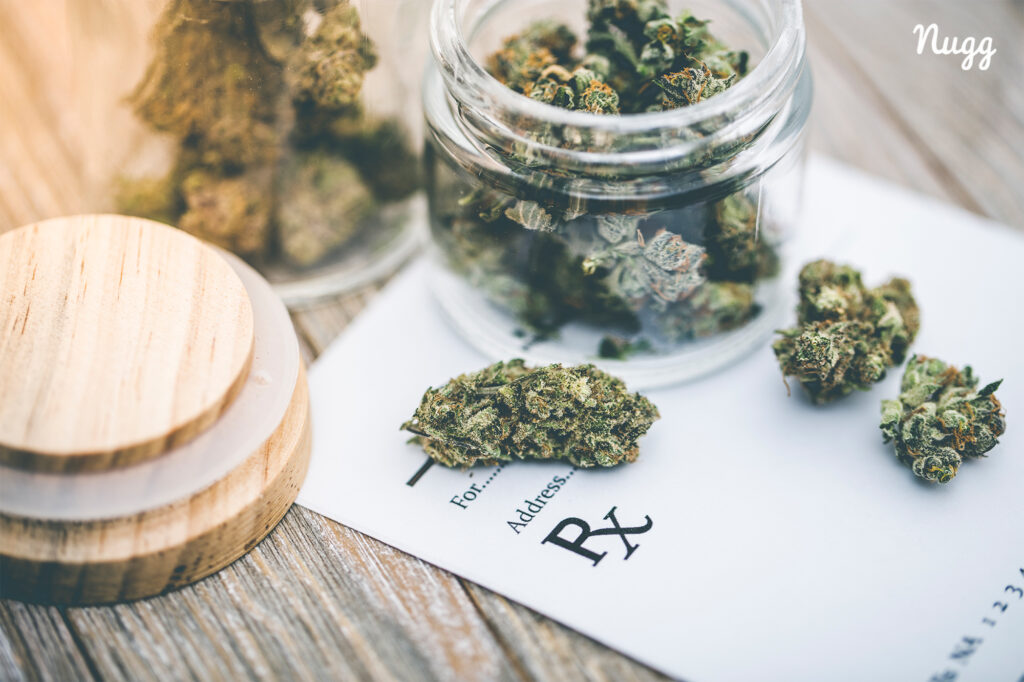
Pruritus is the medical term for itchy skin, a common symptom of many health conditions. The sensation of pruritus ranges in severity from mildly unpleasant to painfully distracting, provoking scratching as a reaction. Various factors can cause pruritus, which affects everyone at some point in life.1
Pruritus can be temporary or long-term. Itchiness that persists for more than six weeks is considered chronic pruritus. A 2016 review notes that more than 1 in 5 people will experience long-term itchiness in their lifetime.2
For a condition that is so prevalent, little is known about the history of pruritus before the 19th century. The current definition of pruritus comes from 1660 when German physician Samuel Hafenreffer detailed it.3 However, most of what is known about itchiness comes from the last few decades.
Due to pruritus's impact on quality of life, researchers have continued to look for new treatment methods. A 2022 article published in the Journal of Investigative Dermatology explores new therapies for pruritus that involve molecularly targeted drugs, some of which may improve itchiness without the need for topical treatment.4
What Causes Pruritus?
Pruritus is a skin-related condition, but its causes are not always dermatologic in nature. Pruritus can stem from systemic, neurological, and psychological factors, and sometimes doctors are unable to determine a cause. Because dry skin is the most common cause of itchiness, older adults tend to be more at risk.
Known causes of pruritus include:
- Dry skin
- Other skin conditions, like eczema or psoriasis
- Inflammation
- Swelling
- Medical conditions affecting the internal organs, like kidney disease
- Hormonal or age-related changes
- Nerve damage
- Nerve disorders like multiple sclerosis
- Shingles
- Certain psychiatric conditions, like obsessive-compulsive disorder
- An allergic reaction
- Other environmental factors
Signs & Symptoms of Pruritus
People who are experiencing pruritus may have one or more of the following symptoms:
- Inflamed rash on your skin
- Bumps, spots, or blisters
- Dry, cracked skin
- Leathery patches
- Skin discoloration
Sometimes pruritus happens with no other symptoms; other times, some or all of the above symptoms are present. Scratching your skin when experiencing pruritus often causes more itchiness and leads to an itch-scratch cycle that is hard to break. Scratching can cause additional symptoms like painful scratch marks, broken skin, and even infection.
Treatment for pruritus will vary from person to person and can involve self-care methods like warm baths and applying moisturizer, prescription medications, and topical anti-itch creams. In some cases, pruritus is a sign of an underlying condition, so it is essential to consult your healthcare provider if you have chronic pruritus, have a fever or infection, or experience other symptoms affecting your body functions.
Can Cannabis Help Alleviate Chronic Pruritus Symptoms?

The way cannabis affects the skin is not a well-studied topic, and more research is needed, especially in regard to specific conditions. Since pruritus is one of the most common skin symptoms, experts have investigated medical cannabis, itching, and causative conditions to varying degrees.
Current research shows that the endocannabinoid system (ECS) appears to be involved in skin homeostasis and that a disruption of this system may cause certain skin disorders. These findings suggest that cannabis, or specific cannabinoids, may have a place in future skin treatment methods.5
Both in vitro and animal models have demonstrated the apparent ability of cannabinoids to modulate pruritus, which may be due to cannabinoid interaction between peripheral nerve fibers and cannabinoid receptors.6 A 2020 review agrees that this effect could be related to cannabinoids’ potential to target inflammation and pain.7
Human studies have also mainly exhibited positive results for the effect of cannabis on chronic itching, but only a few have been completed.6 In a 2021 study, researchers treated 14 patients with topical CBD for itchy skin caused by atopic dermatitis (eczema). After two weeks, a significant reduction in eczema was observed, with an overall improvement in the severity of pruritus and its effect on quality of life.8
CBG is another cannabinoid gaining attention due to its potential to support and boost skin health. A lab study published in 2022 observed that in some areas, CBG may be even more effective than CBD, significantly suggesting the need for more studies into CBG as a dermatological treatment.9
Cannabis treatment for non-dermatologic causes of pruritus has also been investigated in human studies with a positive outcome. In 2005, scientists published a trial of 21 patients who were given a topical cream containing cannabinoids to treat uremic pruritus, which is a systemic condition caused by kidney disease. After three weeks, 81% experienced an improvement in pruritus symptoms, and 38% had no symptoms of pruritus at all.10
These clinical studies were both small and short-term, but their results underscore the need for more extensive long-term clinical studies into cannabis for itching skin. Additionally, more consistent study methodologies must be established in order to uncover best practices for safety and efficacy.
Oral treatments have been investigated for pruritus, but a 2022 review notes that high doses are required, which have been found to cause adverse effects in some users.11 Topical formulations were reported as ideal for itching skin because they bypass those effects. However, more study is still needed to research and develop high-quality products containing cannabinoids, which is hampered by the current legal landscape in the United States.
Because pruritus has many causes, whether or not you should avoid using cannabis for itchy skin may rely on the underlying cause. In some cases, like with eczema, medical cannabis may be helpful, but cannabis use could be harmful to others. Intoxicating side effects of THC or an allergic reaction to cannabis could cause increased itching or scratching. Before using cannabis for chronic pruritus, it is important to consult with your doctor.
Cannabis topicals used for pruritus should not be irritating to sensitive skin. Avoiding intoxicating cannabinoids may reduce some potential risks of medical cannabis use. People have used hemp seed oil, CBD oil, and CBD cream for itch relief. Many medical marijuana topicals may contain additional soothing ingredients like chamomile, lavender, and aloe vera.
Legality and Doctor’s Recommendation
To determine if your state considers pruritus to be a qualifying condition for medical marijuana, check out our Laws & Regulations section for the medical cannabis rules for your state.
If you find that your state recognizes pruritus or its symptoms as a qualifying medical condition, you can seek a doctor’s recommendation to get your medical cannabis card in your state.
How NuggMD Can Help

NuggMD is the nation's leading medical marijuana technology platform, serving patients in over half the states in the U.S. We’ve connected over 2,000,000 patients with their new medical marijuana doctors face-to-face via our state-of-the-art telemedicine platform.
We believe that every human being has the right to explore the benefits of medical cannabis and are fully committed to helping each patient explore all of their options in their journey to wellness. For further information on whether you qualify for medical cannabis, select your state.
Resources
- Tivoli YA, Rubenstein RM. Pruritus: an updated look at an old problem. J Clin Aesthet Dermatol. 2009;2(7):30-36.
- Weisshaar E. Epidemiology of Itch. Curr Probl Dermatol. 2016;50:5-10. doi:10.1159/000446010
- Wang F, Kim BS. Itch: A Paradigm of Neuroimmune Crosstalk. Immunity. 2020;52(5):753-766. doi:10.1016/j.immuni.2020.04.008
- Shibuya R, Takimoto-Ito R, Kambe N, Kabashima K. A New Era with the Development of Cytokine-Based Therapy for Pruritus. J Invest Dermatol. 2022;142(1):47-52. doi:10.1016/j.jid.2021.09.023
- Filipiuc S-I, Neagu A-N, Uritu CM, Tamba B-I, Filipiuc L-E, Tudorancea IM, Boca AN, Hâncu MF, Porumb V, Bild W. The Skin and Natural Cannabinoids–Topical and Transdermal Applications. Pharmaceuticals. 2023; 16(7):1049. https://doi.org/10.3390/ph16071049
- Avila C, Massick S, Kaffenberger BH, Kwatra SG, Bechtel M. Cannabinoids for the treatment of chronic pruritus: A review. J Am Acad Dermatol. 2020;82(5):1205-1212. doi:10.1016/j.jaad.2020.01.036
- Martin CE, Clotet-Freixas S, Farragher JF, Hundemer GL. Have We Just Scratched the Surface? A Narrative Review of Uremic Pruritus in 2020. Can J Kidney Health Dis. 2020;7:2054358120954024. doi:10.1177/2054358120954024
- Maghfour J, Rundle CW, Rietcheck HR, et al. Assessing the effects of topical cannabidiol in patients with atopic dermatitis. Dermatol Online J. 2021;27(2):13030/qt8h50k2vs.
- Perez E, Fernandez JR, Fitzgerald C, Rouzard K, Tamura M, Savile C. In Vitro and Clinical Evaluation of Cannabigerol (CBG) Produced via Yeast Biosynthesis: A Cannabinoid with a Broad Range of Anti-Inflammatory and Skin Health-Boosting Properties. Molecules. 2022;27(2):491. doi:10.3390/molecules27020491
- Szepietowski JC, Szepietowski T, Reich A. Efficacy and tolerance of the cream containing structured physiological lipids with endocannabinoids in the treatment of uremic pruritus: a preliminary study. Acta Dermatovenerol Croat. 2005;13(2):97-103
- Martins AM, Gomes AL, Vilas Boas I, Marto J, Ribeiro HM. Cannabis-Based Products for the Treatment of Skin Inflammatory Diseases: A Timely Review [published correction appears in Pharmaceuticals (Basel). 2022 Jul 11;15(7):]. Pharmaceuticals (Basel). 2022;15(2):210. doi:10.3390/ph15020210
The information in this article and any included images or charts are for educational purposes only. This information is neither a substitute for, nor does it replace, professional legal advice or medical advice, diagnosis, or treatment. If you have any concerns or questions about laws, regulations, or your health, you should always consult with an attorney, physician or other licensed professional.

